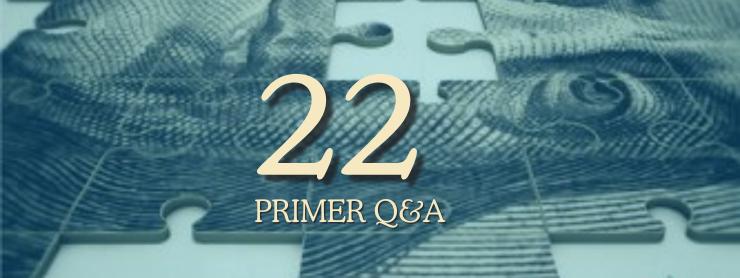Originally published November 4, 2011 on the New Economic Perspectives blog.
Sorry am traveling, so the Blog has had a bit of a vacation. Must be brief today:
Q1: What about Ellen Brown?
A: I like the idea of public banking. Not a topic for today. Do not completely agree with her view of Fed.
Q2: What encourages a bank to lend money?
A: Most important: a profit opportunity to lend to a borrower likely to service her debt. Hint: has nothing to do with reserves.
Q3: At what point does borrowing at discount window push up discount rate?
A: Never. This is not about quantity, it is about price. Central bank sets the rate at the discount window, so rate rises only when central bank decides to increase it.
Q4: Why does Japan have low bond rates?
A: Because BofJapan wants low rates. Set the overnight rate at zero, keep it there for a generation, and just like magic markets price in a zero cost of overnight funds! You could just as well have asked why the USA had near zero bond rates throughout WWII in spite of budget deficits that would cause a Greek to blush.
Q5: Many say rest of world funds the US trade and budget deficits.
A: And they be wrong. Dazed and confused. Where did every dollar the Chinese have come from?
Q6: Convince Bill Gross and we win the lottery.
A: Right. Note how well PIMCO did before Paul left PIMCO, and how poorly it is doing now. Paul and his rabbit understood MMT (more or less).
Q7: Isn’t treasury mandated to sell bonds equal to its deficit and to have funds in its account at the central bank before cutting checks?
A: Yes, true of many treasuries around the world. Good example of a government willing to tie its hands behind its back. Topic for later blog. It is a specific case, not the general case. But, yes important but we will see it makes no difference.
Q8: Banks create deposits out of thin air?
A: Yes when they make loans.
Q9: Deposit multiplier story: banks lend their excess reserves and through the magic of a multiplier money is created by a multiple.
A: Pure textbook fantasy. No, doesn’t work that way.
Q10: What would happen if reserves were discretionary?
A: Central bank has given up interest rate target, lets checks bounce, and bank checks don’t clear at par, so payments system breaks down.

